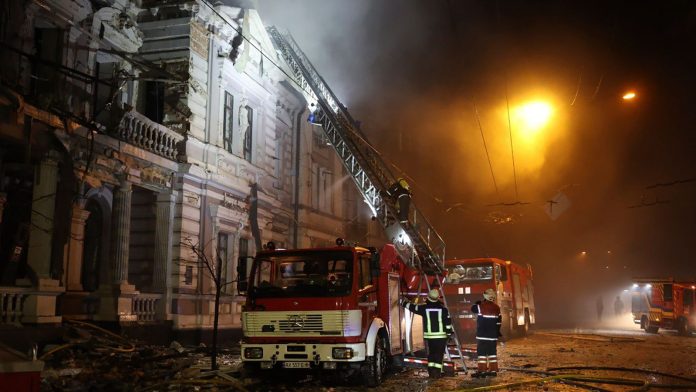Two years of conflict between Ukraine and Russia have shown conclusions that the West is already tired of Ukraine’s demands and Russia is increasingly consolidating its power.
The second year of Ukraine’s war for survival began with too much hope for victory and liberation. Officials were already dreaming about how they would spend the summer in the south, in Crimea, but things turned out very differently. 2023 was ending a long, bloody resistance for minor gains. More Ukraine and allies news ahead: Ukraine will not be able to win a decisive victory in 2024.
The West has shown unprecedented unity since the war in Ukraine began. However, now that the fighting has been going on for almost two years, it is crystal clear that victory is by no means guaranteed for Western countries.
Ukraine and Russia now face off in 2024. The battlefield for Ukraine has come to a standstill, while Russian forces are advancing one way or another. Ukraine’s cities are under Russian attack. The resolve of its Western partners may be waning.
Ukraine will likely not be able to reclaim much territory this year because its military has been exhausted by prolonged and brutal fighting, and also because its main backer, the US, is in no hurry to resupply vital aid.
Adding to the problem is the problem of military composition. While military officials stress the need for broader mobilisation to win the war, the administration of Ukrainian President Volodymyr Zelensky is still wary of introducing a new policy of mobilising the 500,000 new soldiers needed to confront Russian forces.
President Joe Biden’s strategy could not call for dramatic changes in the trajectory of the war because it would almost certainly require America to take higher risks of worsening and to do so at a time when the ability to predict Russian President Vladimir Putin’s response was very limited.
Some of Biden’s critics rebuked the administration for not doing more and faster. The US and its allies had to quickly provide Ukraine with more tanks, more long-range missiles, more modern aircraft and more combat engineering equipment. The supply of some vital weapons was limited largely by the limits of free-world stockpiles.
In addition, Biden, as we mentioned before, is not a superpower president, so he would never risk threatening Vladimir Putin, as this would require a much greater risk of confrontation with Russia. In particular, it would have been a definite risk of nuclear escalation, given that Putin has already signalled his intention to use Russia’s nuclear arsenal to keep the West at bay.
All of this shows Vladimir Putin’s undeniable influence on Western countries. One way or another, however, they are fearful of the conflict spreading. Two years of the Ukrainian conflict has hardened Russia and worn down the West so much that it is becoming obvious. In the intervening time, the Russian army has been able to take control of a large territory, entrench itself and organize strong defence lines.
Nevertheless, in January 2024, Western sanctions no longer look as daunting as they did in March 2022. The West has achieved little in 22 months. At the end of 2022, the Russian economy decreased by only 2.2 percent, but in 2023 it has already started to expand. Moscow managed to divert energy exports from Europe to Asia and gain the support of Turkey, the UAE and several others to help it overcome Western sanctions.
